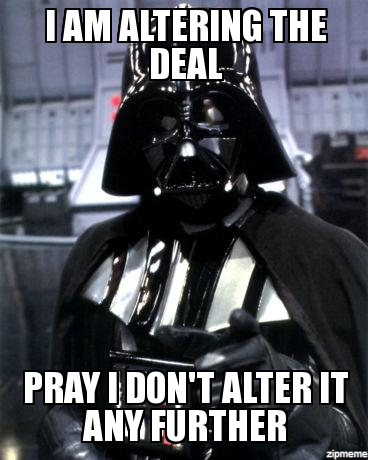I’ve enjoyed pointing out the absurdities that the concept of intellectual property enables. Now I want to address the matter from a more pragmatic angle.
Gun rights activists like to point out the fact that gun control laws are ineffective and thus passing them is pointless. Advocates for drug legalization like to point out the fact that drug prohibitions are ineffective and should thus be repealed. Both are sound arguments. Investing resources into enforcing ineffective laws is a waste. Those resources would be better redirected at effective means of addressing problems. Many of the people who make those two arguments are surprisingly inconsistent with their logic when it comes to intellectual property laws though.
Intellectual property laws are ineffective. I can pirate almost any creative work right now with a few keystrokes thanks to numerous piracy websites. The most notorious of these sites is The Pirate Bay. Governments around the world have attempted to use intellectual property laws to shutdown The Pirate Bay for more than a decade but the site remains online. Even when governments are able to shutdown a piracy site, several new ones appear in their place. And those are clearnet sites whose server locations and operators are, for the most part, easily found. There is a whole world of “darknet” piracy sites hidden with Tor Hidden Service, I2P, and similar protocols.
Piracy can’t even be thwarted in the physical world. Everything from counterfeit designer clothing and fashion accessories to counterfeit electronics can be readily had. Even the government of the United States can’t reliably distinguish counterfeit components from authentic ones.
Advocates of intellectual property continue to claim that intellectual property laws protect inventors and authors of creative works but the evidence indicates otherwise.
Intellectual property is a fairly modern concept. Before it came into being inventors and authors came up with other strategies to protect their works. The same is still true today even with intellectual property laws on the books. Coca-Cola, for example, doesn’t have a patent on its formula. Instead it relies on keeping it a secret. Kentucky Fried Chicken relies on the same strategy. Many online content creators make a living on content that they release for free. How do they accomplish this? By urging their fans to support them through services like Patreon. For a fee Twitch viewers can subscribe to the channels of creators they enjoy to support them. YouTube allows creators to monetize videos through advertising. Many inventors and authors utilize crowdsourcing services such as Kickstarter to get paid upfront before releasing their latest product.
Netflix, Spotify, and iTunes Music have also demonstrated that piracy can be reduced by offering a product in a convenient package at a reasonable price. Why bother searching through various pirating sites for a song when you can pay $10 a month to Spotify or Apple to access a vast all-you-can-consume buffet of music? Your time is worth money after all and for many people $10 a month isn’t a lot of money.
None of these strategies would likely exist if intellectual property laws were effective. If gun control laws and drug prohibitions are argued to be pointless because they’re ineffective, then so should intellectual property laws.
